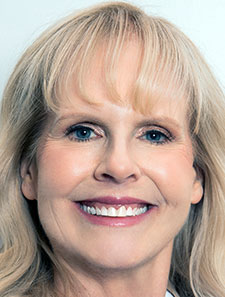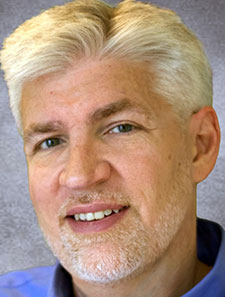 Some hospitalists have found greener pastures working in locum tenens capacities. The freedom, flexibility, enticing pay, and the ability to work in a variety of hospital environments and medicine models are attractive. But finding the right recruiting agency, negotiating contract terms, surviving the onboarding process, and being self-employed can all present challenges if you choose this path.
Some hospitalists have found greener pastures working in locum tenens capacities. The freedom, flexibility, enticing pay, and the ability to work in a variety of hospital environments and medicine models are attractive. But finding the right recruiting agency, negotiating contract terms, surviving the onboarding process, and being self-employed can all present challenges if you choose this path.

Dr. Evans
“When looking to work in a locum capacity, embrace change and see challenges as opportunities,” advised Stephanie Evans, MD, MPH, a clinical assistant professor of medicine at University of Arizona College of Medicine–Phoenix, hospital medicine physician at Banner-University Medical Center Phoenix, an academic hospital with 766 beds in Phoenix; and a locum hospitalist at multiple health systems in Arizona.
Look for a recruiting agency by researching online and asking colleagues for referrals. “A referral from someone already working in a locum capacity can go a long way—some built-in trust will exist from the start,” said Dr. Evans, who worked as an employee of different groups for 13 years before pursuing locum work for more autonomy and variety.

Dr. Ramchandani
“If you’re employed full-time, ask an agency how long it will take to complete credentialing before resigning from your current position because it can take six months or longer if you need to apply for a license in a new state,” said Charu Ramchandani, MBBS, MD, FHM, a locum hospitalist in the department of internal medicine at Montefiore St. Luke’s Cornwall Hospital in Newburgh, N.Y., a 242-bed community hospital.

Dr. Williams
Gwendolyn Williams, MD, FACP, FHM, assistant professor of medicine in the department of internal medicine at Virginia Commonwealth University in Richmond, an academic hospital with 865 beds, who has worked as a locum hospitalist in South Carolina, Virginia, and Wyoming, recommended keeping a comprehensive record of your professional documents, such as diplomas, residency certificates, and state licenses so it’s up to date when needed. Be prepared to explain any gaps in your work history.
She uses a smaller physician-owned recruiting company, which knows specifically what hospitalists do and what terms are ideal. “They advise me on what questions to ask when interviewing with a hospital and are transparent about a site’s shift rate, shift hours, and clinical responsibilities,” said Dr. Williams, who worked a full-time job for nine years before returning to locum work.

Dr. Miller
Working with more than one recruiting agency can result in more opportunities, said Thomas Miller, MD, FHM, a hospitalist based in Chesapeake, Va., who has worked in a locum capacity at a variety of health systems in Colorado, Ohio, Virginia, and Minnesota. To avoid overlap, make sure your contract states that you can’t be presented to a hospital without your permission.
Another reason to be careful about which hospitals you’re presented to is that you most likely won’t be able to contract with those hospitals for at least a year through another agency, even if you haven’t worked a shift at that facility, Dr. Evans said.
If you have any doubts about a position, ask to speak to the group’s medical director. “Recruiters can be great, but they may not understand the day-to-day realities which can make all the difference between a great assignment and a disaster,” said Dr. Miller, who previously worked as an employed hospitalist for a private group and multispecialty network.
Reviewing contracts
Read contracts carefully, and make sure the terms are agreeable. “You can request and negotiate changes,” Dr. Miller said. “If a locum agency or hospital is not open to changes, it may not be the best fit for you.”

Dr. Wright
Contracts should be comprehensive. Obviously, pay rates are very important, and they may be negotiable. “Locum tenens physicians take greater risks in their schedules compared to employed physicians,” Dr. Evans said. “We may also have to travel long distances to sites, so we typically get paid more for these reasons.”
Make sure that you’re paid time-and-a-half for federal holidays, which is often omitted from contracts, said Masina Wright, DO, a locum hospitalist at multiple hospitals including Christus St. Vincent, a community urban hospital in Santa Fe, N.M., Holy Cross Hospital, a rural hospital with 25 beds in Taos, N.M., and Sandoval Regional Medical Center, an academic community hospital and part of University of New Mexico Hospital in Rio Rancho, N.M. They are also employed as an internal medicine doctor at Cardiology Now in Toronto, Ontario, Canada.
Other contract terms may be negotiable as well. Although recruiting agencies typically make travel arrangements and find housing for locum physicians, Dr. Miller recommended requesting to make your own bookings and get reimbursed. “Travel reps may not take your needs into top consideration, plus you will accumulate a lot of airline, rental car, and hotel points, as well as a higher member status if you do your own bookings,” he said.
Malpractice limits should be reasonable and abide by state laws. Tail coverage is essential to protect you from future lawsuits, and always get a copy of your certificate of insurance for your own protection, Dr. Miller said.
Cancellation clauses are also necessary. “If a hospital cancels your shifts, make sure you still get paid if it’s within a certain time window,” Dr. Miller said. “You may have a tough time replacing shifts with only a few weeks’ notice.”
“I request 30 days’ notice for a health system to cancel a locum shift, and I agree to give them the same amount of notice,” Dr. Evans said.
Expect to find a non-compete clause in a contract. It may state that you can’t work a certain number of miles from the facility you worked at for a specific time period. “You may want to negotiate this, especially if your locum work is close to home,” said Masud Habibullah, MD, managing director of SMH Innovations LLC, a locum tenens hospitalist recruiting company in Savannah, Ga.
You might also see a clause that prevents you from becoming an employee at a health system after completing locum work there, or you may be prohibited from contracting with another locum agency for a certain time period. “Generally, one year is the standard; negotiate a shorter time period if it’s beyond that,” Dr. Evans said.
Contracts may also include buy-out clauses, which would come into play if a locum were offered a permanent position. Typically, the hiring hospital will pay that fee, but sometimes it won’t. “Again, this is something that you should negotiate upfront if you think this scenario could occur,” Dr. Habibullah said. “You may be more successful in negotiating terms if you have a lawyer to back you up.”
You may also want to retain a lawyer to review a contract, especially if you’re not legally savvy.
“A locum tenens agency may not have your best interests at heart, so it’s important to make sure everything is legitimate because this is a transactional relationship,” Dr. Williams said. “If an attorney finds something concerning, they may save you a lot of money.”
Dr. Evans had an attorney review a locum tenens contract early on, but now—as a physician who has done locum work for many years—she compares new contracts line by line with a good contract she had previously.
The onboarding process
Every hospital is different—some may provide locum hospitalists with a comprehensive orientation program, while others may expect them to handle a full workload on day one.
“Ideally, an institution will forward me their policies and procedures—which I’m sure to read before starting—and a list of cell phone numbers I may need, as well as give me a tour of the hospital,” Dr. Evans said.
“Try to find out as much as you can before your first day,” Dr. Evans continued. “I always have a list of questions to ask, and if possible, I try to get a badge and make sure my login works in advance.”
Because hospitals pay top dollar for locums, they may not want to spend time on orientation. “This is a big mistake for everyone involved,” Dr. Miller said. He has worked at a few places that wanted to provide electronic health record orientation on the first day, while also expecting him to pick up a full panel of patients, which he strongly advises against.
To overcome onboarding challenges, Dr. Wright—a second-career hospitalist who pursued locum work right after residency—recommended finding someone willing to help you navigate as a newbie, such as a house supervisor, charge nurse, or co-physician. Keep a notebook for each hospital with the notes you may need.
One of the biggest challenges of being a locum is that some colleagues may view you negatively, or at least skeptically, at first. “The key to being a successful locum is to see yourself as a full member of the team, even though you’re an outsider,” Dr. Miller said. “Offer to help your colleagues if you’re caught up or offer to help with an extra admission, even if the rules state otherwise. The extra hour you spend, or even making the offer, will be positively viewed by those who thought you were ‘just a locum.’”
While working as a locum, Dr. Evans has offered advice to hospital medicine groups based on what worked well at other facilities, which her colleagues have appreciated.
Regarding connecting with patients, when you approach them with compassion, respect, and dignity, as well as listen to them, it’s easy to build rapport, Dr. Williams said.
Dr. Evans said it’s important to find a personal connection to patients. “Get to know patients as people, and not just what their medical conditions are,” she advised.
Managing your money
As a locum, you will work in a non-employee capacity. Given that, Dr. Williams recommended retaining a financial advisor who specializes in locum physicians’ work. They can advise you on whether working in a sole proprietor, LLC, or S Corporation capacity would provide the best tax advantages for you.
They can also calculate your quarterly estimated taxes and which deductions you can write off, such as attire, medical equipment, travel-related expenses, such as mileage and hotel rooms, health insurance premiums, and home-office expenses. They can also give insight into funding retirement accounts.
Open a checking account solely to deposit your locum payments and have a credit card dedicated to locum work. “For tax reporting purposes, don’t mingle your independent contracting work and personal funds,” Dr. Williams said.
Dr. Wright used a financial advisor to determine how many shifts they needed to work to achieve their income needs. They also work with a bookkeeper and keep clear records and paper receipts of all expenses incurred, which can help offset tax payments.
Dr. Evans recommended having an appropriate emergency fund in case you have leaner months. Line up several different facilities to work at, so if shifts become lighter at one, you can add shifts at another one.
Work-life balance
Some hospitalists who work in locum tenens capacities have found that temporary work brings balance to their life, while others have discovered the opposite.
Dr. Ramchandani, who previously worked as an academic hospitalist, pursued locum work when having her second child because she wanted scheduling flexibility. Now she can plan shifts around her husband’s schedule, and he can pick up the kids when she’s working. She doesn’t have to work on holidays when the kids are home, and she can take time off to travel.
Having scheduling flexibility has been great for Dr. Evans, as well. “I could take off three months if I wanted to, or schedule around a family event,” she said.
She admits that even though she loves traveling, the logistics of it can be tiring. She schedules a day to unwind after traveling.
As a locum, feelings of isolation can kick in when away on assignment. To combat this, Dr. Evans will prioritize socialization before leaving town, and she’ll try to connect with colleagues during and after work.
Dr. Miller is active with his local SHM chapter, so he can remain connected with the hospitalists in his community when traveling.
Dr. Wright works as a full-time employee in Canada, in addition to locum work in the U.S. Not having the typical seven days off after working seven days as a hospitalist has made it difficult for them to find a work-life balance, and they admit to feeling burned out. Moving forward, they will include time off in their locum schedule.
Dr. Wright has neglected their personal health and wellness when working a lot of 12-hour shifts and traveling. “I don’t have my gym and my own kitchen, so I’m not cooking as much,” they said. “I don’t have my garden or get to the farmer’s market when working away from home.”
Some other downsides
In addition to impacting work-life balance in some negative ways at times, locum work has a few other drawbacks.
“I don’t have a say in how the hospitalist program runs—I’m just a visitor there to do my job,” Dr. Ramchandani said. “I can’t push for changes, and even if I try, it’s not always welcome.”
“Most places that need locum hospitalists struggle to keep full-time staff, so there’s usually a reason you’re getting paid more—whether it’s the location, workload, or something else,” Dr. Ramchandani continued.
Because you’re not an employee of a non-profit community hospital when working as a locum, you can’t count locum work toward student loans, Dr. Wright pointed out.
Locum work has variable job security. “You have to rely on a recruiting agency to find you places to work and the shifts you want,” Dr. Williams said.
Another drawback is that some people stereotype locums as physicians who just show up and don’t care about being part of a group or providing great patient care. “One bad apple can spoil the bunch,” Dr. Evans said. “As people have more experience working with locums, I think that perspective will change.”
Lots of benefits
Sure, downsides exist. But there are many advantages to working as a locum tenens as well.
“The most rewarding aspect is having a well-paid bridge to other things in life,” Dr. Wright said. “It’s perfect for moonlighting. The flexibility has been great, especially when I was able to take two months off when moving from Canada to the U.S.”
Dr. Evans loves to work in a variety of practice settings, both rural and urban, and to have different opportunities, such as teaching. “I’ve worked with different groups and have seen how they meet challenges,” she said. “Driving around Arizona is absolutely gorgeous.”
Dr. Williams has always experienced gratitude from others when working as a locum. “It’s rewarding and fun to meet other hospitalists from across the country and to make human connections,” she said.
Looking ahead
Dr. Evans foresees working in a locum capacity for the rest of her career. Others, such as Dr. Miller, have done it temporarily, or in conjunction with full-time employment, as Dr. Wright has.
“Working in a locum capacity is a good way to transition when you want to leave a position or test out a new hospital or location,” Dr. Williams said. The possibilities are endless when you have a growth mindset about how your work life can look.”
For Dr. Ramchandani, locum work is a temporary stage. “I plan to apply for an endocrine fellowship when my children are a little older,” she said. “I’d like to go back to full-time work eventually, but with a manageable schedule.”
As an early-career physician, Dr. Wright is still figuring out what their future holds. “I will work locum shifts in the states to pay my student loans for the foreseeable future,” they said. “It’s a necessary stage for me right now to meet my financial obligations.”
They expect locum work to continue to have a place in modern medicine because of the ongoing physician shortage. “Most per diems are grateful to have the shifts covered,” Dr. Wright concluded.
Karen Appold is an award-winning journalist based in Lehigh Valley, Pa.